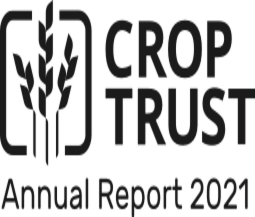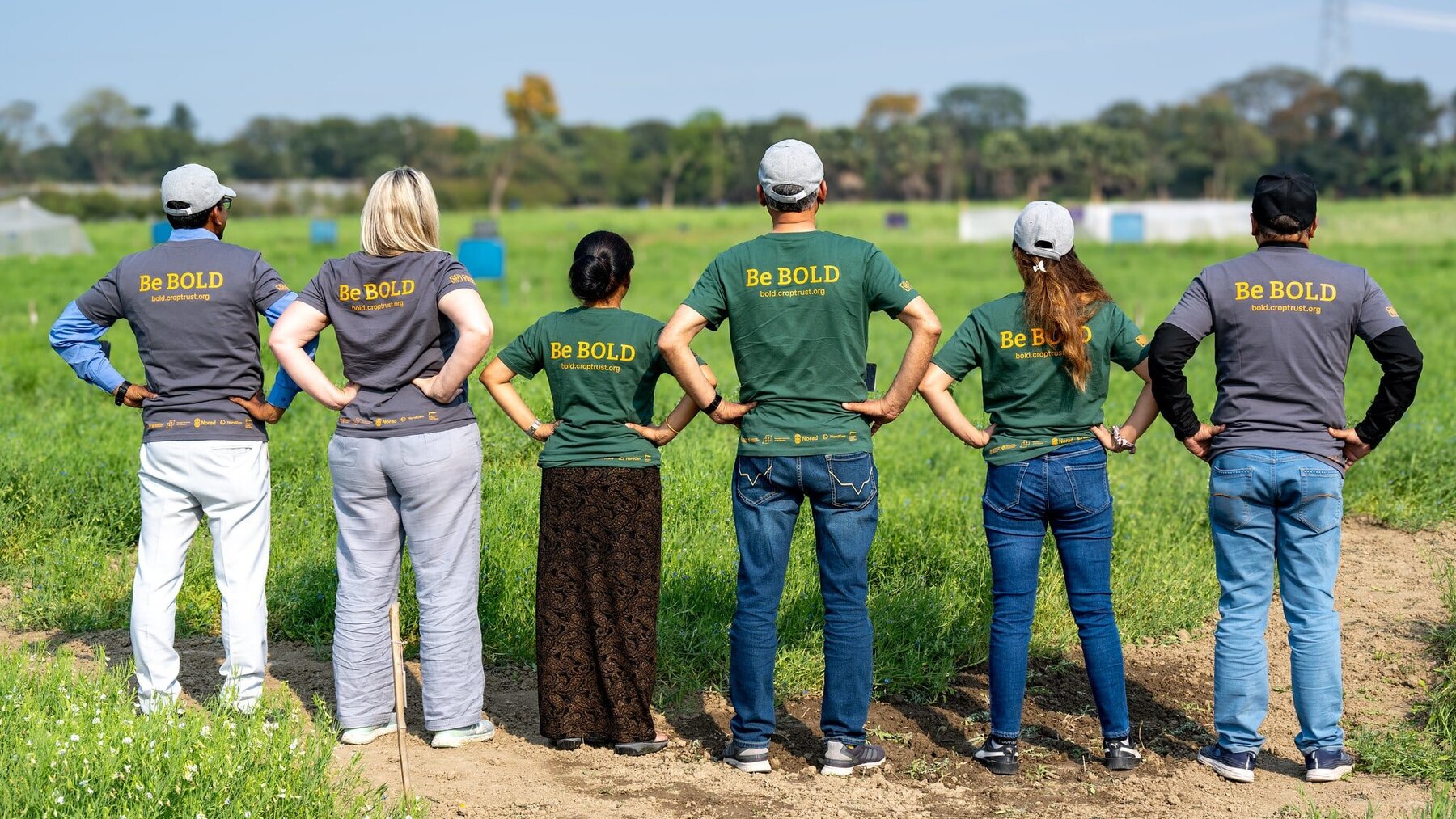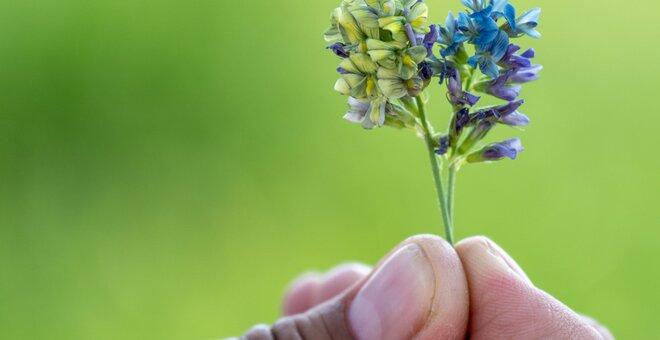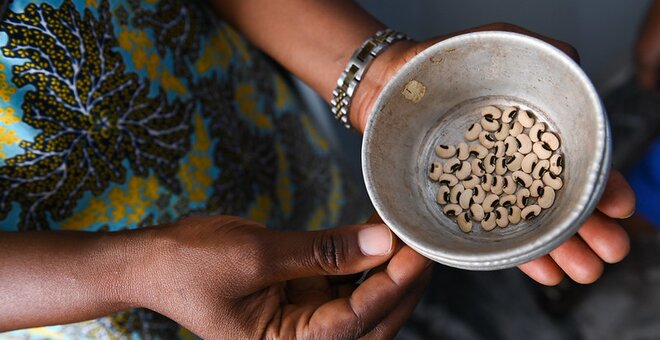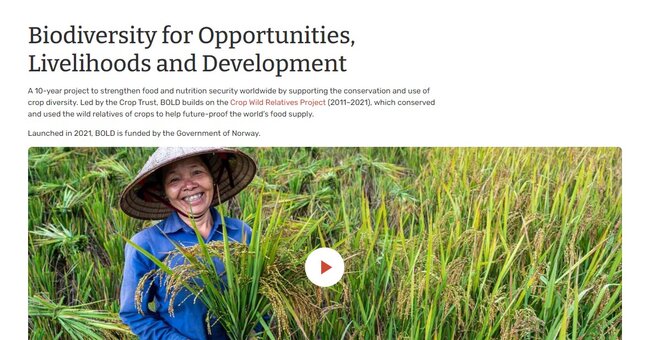Go BOLD or Go Home
Biodiversity for Opportunities, Livelihoods and Development (BOLD) is a decade-long project, funded by the Government of Norway, which extends the successes of the Crop Wild Relatives Project (2011‒2021).
It started operation in 2021. Led by the Crop Trust in partnership with the Norwegian University of Life Sciences (NMBU), NordGen, and the International Plant Treaty, BOLD safeguards crop diversity in genebanks and facilitates its accessibility for breeders and farmers. Moreover, it endeavors to develop improved crop varieties to fortify smallholder farmers’ resilience to climate change, thereby advancing food and nutrition security.
Capacity and Resource Development
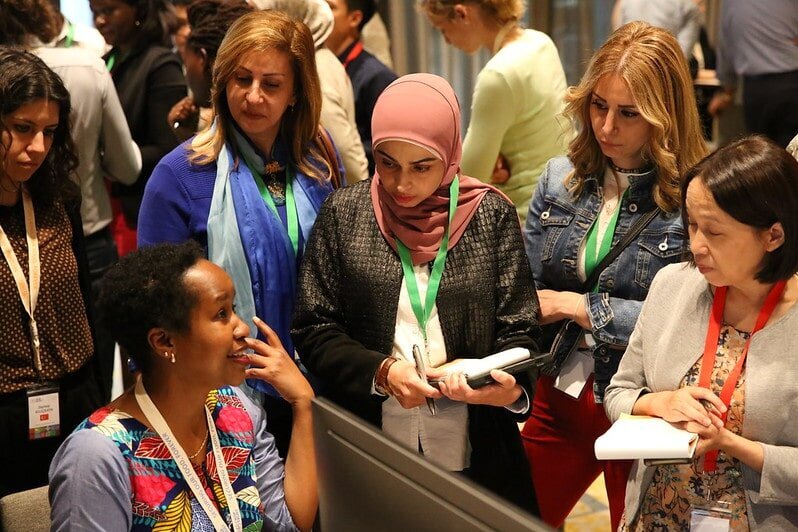
Crop Trust Program Assistant Faith Wambua-Lüdeling leads a training session on the GRIN-Global community edition at the Bonn BOLD workshop, May 2023. (Photo: Luis Salazar/Crop Trust)
In 2023, BOLD partnered with 12 national genebanks in Africa, Asia and Latin America: Azerbaijan, Ecuador, Egypt, Laos, Lebanon, Morocco, Pakistan, Sudan, Tanzania, Uganda, Vietnam and Yemen. This collaboration aims to upgrade essential equipment, improve processes and train staff to ensure effective genebank operations. The first face-to-face partner meeting was held in May 2023 in Bonn, Germany, combined with training sessions at the Leibniz Institute of Plant Genetics and Crop Plant Research (IPK) in Gatersleben. Through the Emergency Reserve for Genebanks, BOLD supported genebanks facing extraordinary challenges, such as replacing a power generator at the National Agriculture and Forestry Research Institute (NAFRI) in Laos to ensure continuous operations during the typhoon season.
Making New Diversity Available
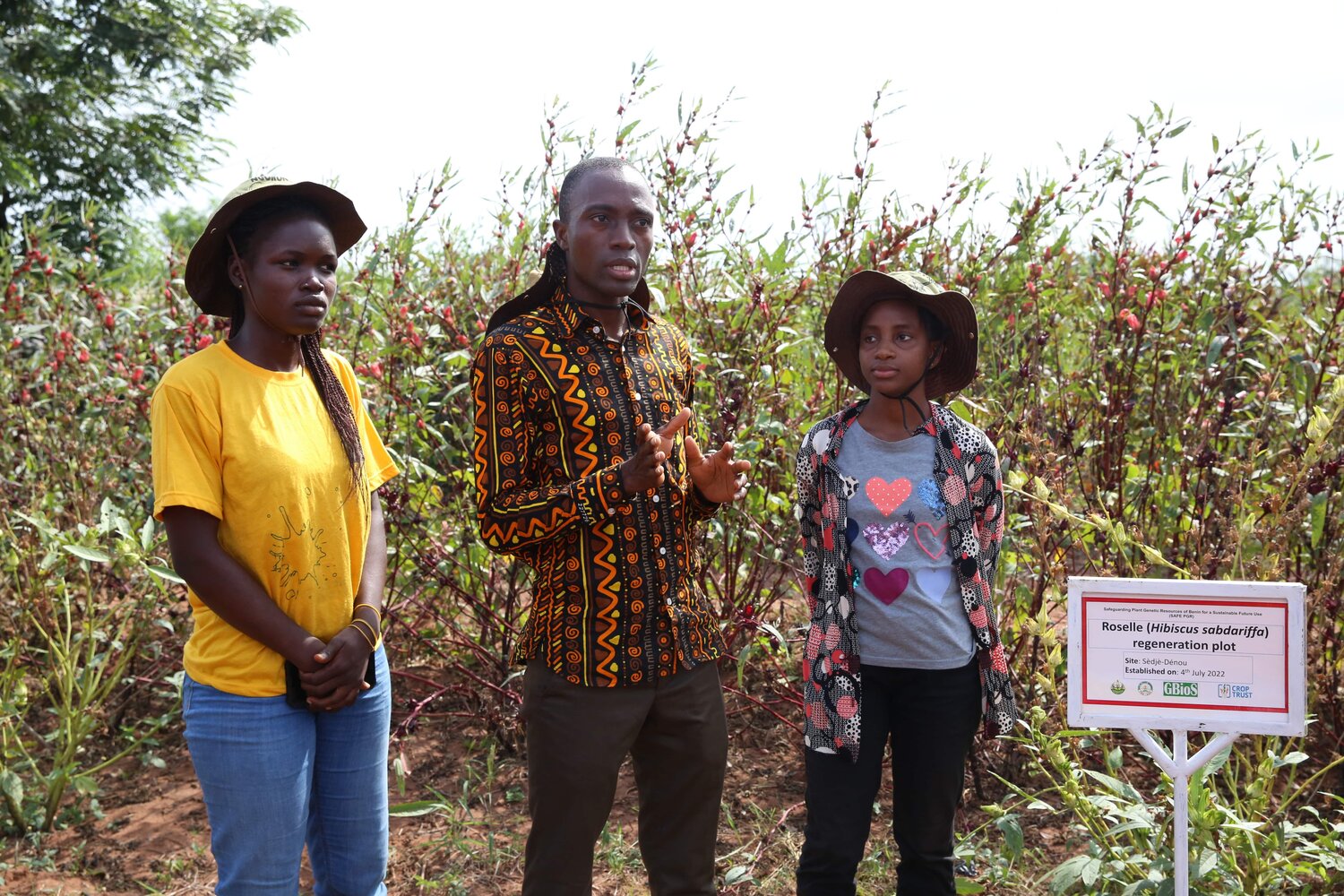
GBioS Genebank field staff at the Sèdjè-Dénou regeneration site located in the municipality of Zè, Benin. (Photo: L.M. Salazar / Crop Trust)
Building on the work of the Crop Wild Relatives (CWR) Project, another BOLD component supports the development and use of new crop diversity for climate change adaptation and food security in 20 partner countries. In July 2023, a landmark event in Almaty, Kazakhstan, promoted new breeding lines of resilient alfalfa. In Morocco, durum wheat and barley lines derived from wild relatives showed up to 20% higher yields and superior nutritional value under severe drought conditions, highlighting the potential of crop wild relatives in breeding programs.
Genebanks and Seed Systems
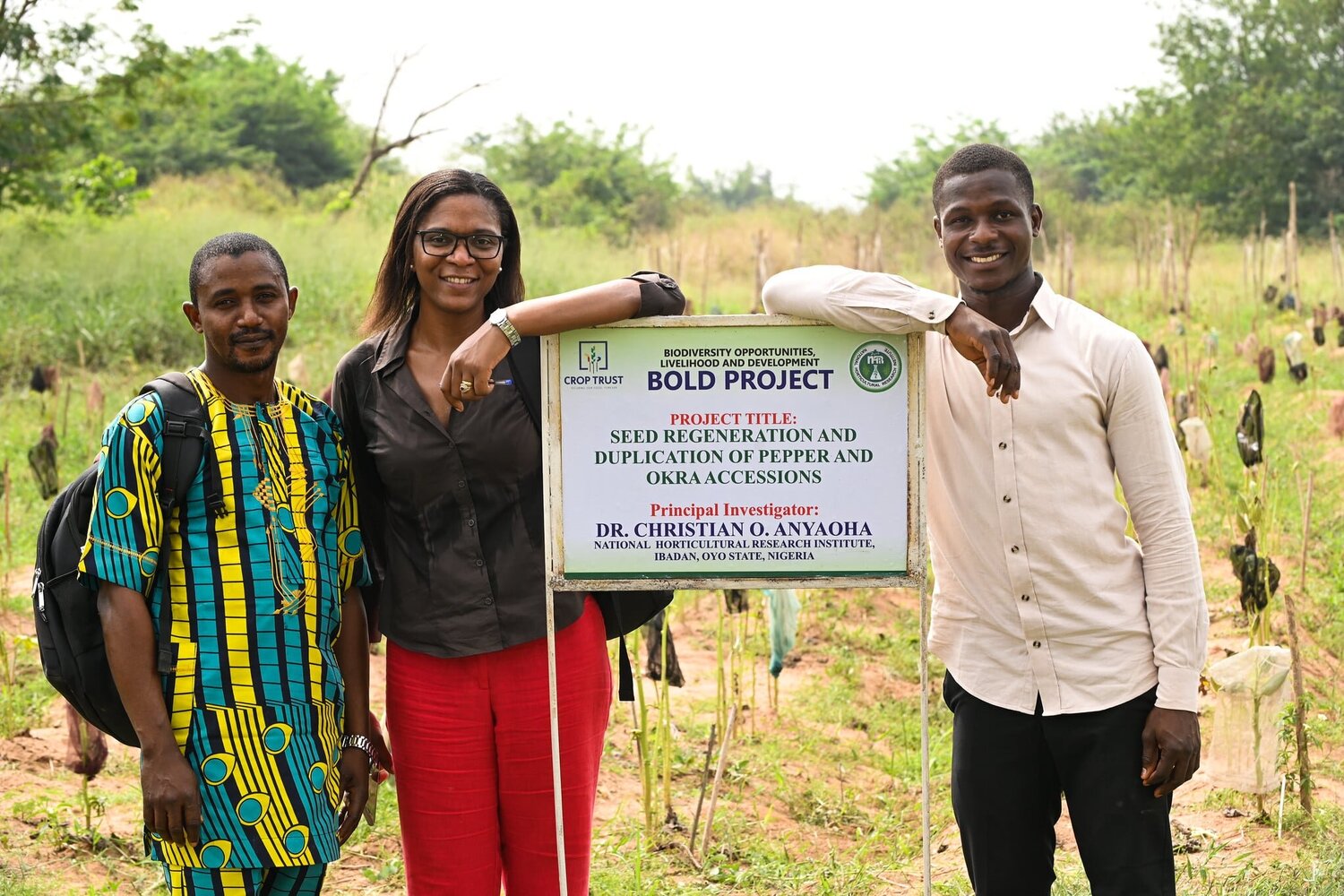
BOLD Project partners visit Nigeria’s National Horticultural Research Institute (NIHORT) in Ibadan to see crop conservation activities, including seed regeneration. (Photo: Neil Palmer/Crop Trust)
A third project component, led by NMBU, focuses on research to make crop diversity more accessible to farmers. In 2023, workshops were held to strengthen linkages between genebanks and seed system actors in Bhutan, Ecuador, Tanzania and Uganda. Outreach activities included a postgraduate course at Wageningen University, lectures at the 12th Annual Cornell Corteva Plant Breeding Symposium, and the African Union's High-Level Dialogue on Inclusive Seed Sector Development. The team also published an article on developing resilient and inclusive seed systems for farmers that can be used as a model by others around the world interested in amplifying the impact of genebanks on the livelihood of farmers.
Safety Duplication at the Svalbard Global Seed Vault
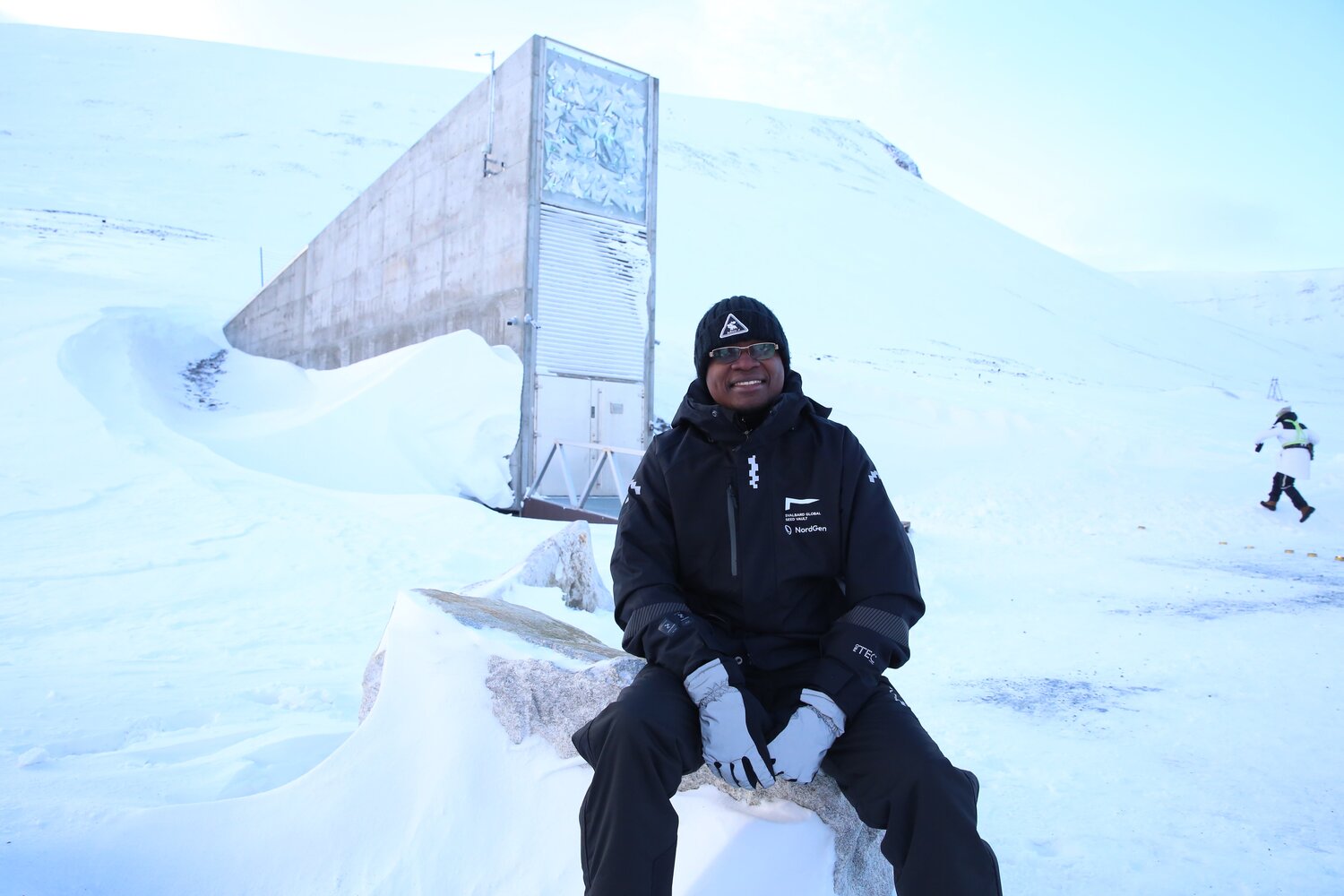
Innocent Nonoukon Dossou Aminon, Genebank Director of NGO GRIGADEB in Benin, supported by the BOLD project, deposited 427 accessions of seven crops and poses outside the Global Seed Vault in February 2023. (Photo: LM Salazar/Crop Trust)
By the end of 2023, BOLD had signed agreements with 43 partners, targeting 40,438 accessions for regeneration and 39,382 for safety duplication in the Svalbard Global Seed Vault. Five partners deposited 3,419 accessions during the year, with those from Albania, Croatia, North Macedonia and Benin making inaugural deposits under the BOLD Project.
Communications, Engagement, and Outreach
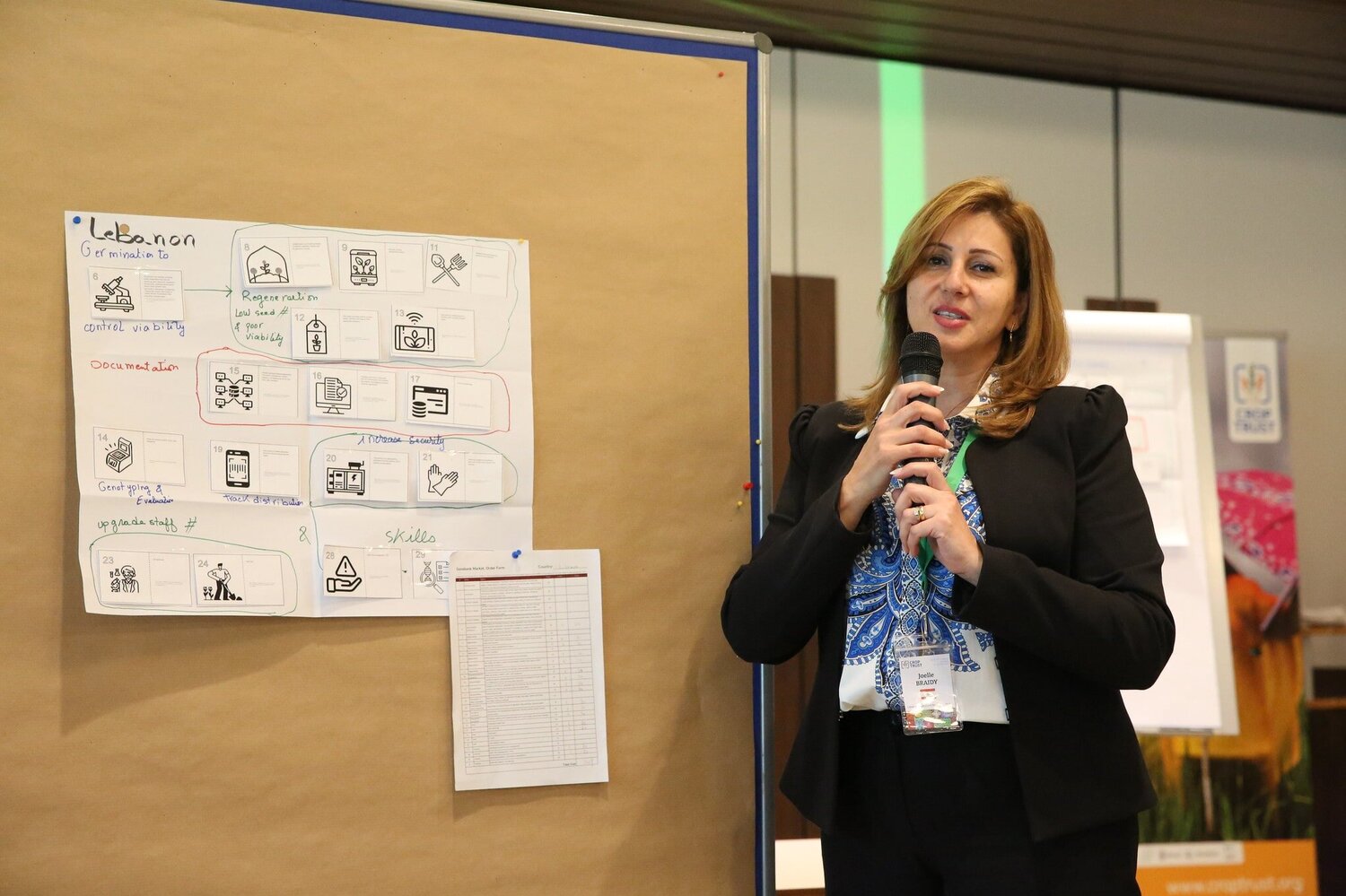
Joelle Breidy, National Seed Bank Manager at Lebanese Agricultural Research Institute, shares her responses to an exercise at the BOLD Workshop held in May 2023. (Photo: Luis Salazar/Crop Trust)
A Communications Community of Practice (CCOP) was launched to provide communication training and orientation to national genebank staff. Through online and on-location sessions, Crop Trust staff will sharpen skills in photography, video interviewing, writing, editing, social media, and event coverage. The aim is to develop a comprehensive communications plan and create key materials for each genebank. The CCOP will also offer opportunities to find compelling stories, engage audiences like policy-makers and donors, and interact with genebank stakeholders.
Thanks to the BOLD Project, we will upgrade our infrastructure and equipment. We will have a lot of new responsibilities, but our job will be much easier.
